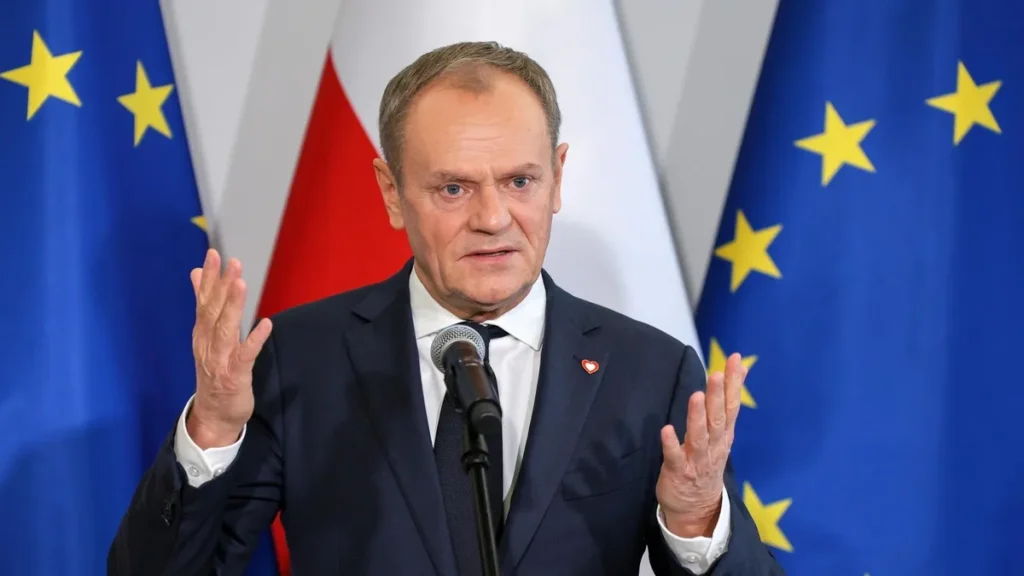Confidence Vote Triumph of Donald Tusk, Propels Poland toward Pro-EU Trajectory

Newly appointed Polish Prime Minister Donald Tusk reacts after winning the vote of confidence for his government, in Parliament, in Warsaw.
Poland recently witnessed a significant political shift. Donald Tusk secured a vote of confidence, marking a pivotal moment in the country’s trajectory. This development not only reinstates Tusk but also heralds a potential transformation in Poland’s stance toward the European Union (EU). Tusk’s return to power signals a departure from the previous administration’s right-wing populism. It steers the nation toward a more pro-EU direction.
Donald Tusk’s political journey has been emblematic of his pro-European Union convictions. His earlier tenure as Prime Minister from 2007 to 2014 and subsequent role as President of the European Council showcased his commitment to European integration and cooperation. Now, with his return as Prime Minister, Tusk brings with him a wealth of experience and a clear pro-EU agenda.
The vote of confidence reinstates Tusk’s leadership. It also signifies a significant public and political endorsement for a pro-European approach. Under previous leadership, Poland had followed a more nationalist and right-leaning path. This approach frequently resulted in tensions with EU institutions on multiple fronts. These issues encompassed matters concerning the rule of law and democratic principles.
Tusk’s victory in the confidence vote reflects a desire among a substantial segment of the Polish population for a more collaborative and integrated approach within the EU. His platform emphasizes the importance of Poland’s participation in the European project, advocating for stronger ties, increased cooperation, and a reinvigorated commitment to shared European values.
This shift in leadership and ideology holds profound implications for Poland’s domestic policies and its role within the EU. Tusk’s pro-EU stance suggests potential changes in Poland’s diplomatic relations. It also implies shifts in economic strategies. Furthermore, it indicates adjustments in policies concerning issues such as climate change, migration, and trade, aligning more closely with the broader European agenda.
Moreover, Tusk’s return may also signify an opportunity for Poland to reposition itself as a proactive and influential player within the EU. His experience and familiarity with European dynamics can potentially foster a more constructive dialogue between Poland and other member states. This could contribute to a more cohesive and unified European Union.
However, Tusk’s pro-EU stance might face challenges, particularly from segments of the population that favor a more nationalist or isolationist approach. Balancing the aspirations of those seeking closer European integration will likely be a key task for the new leadership. Addressing the concerns of those advocating for a more independent national agenda is another crucial aspect to navigate.
In conclusion, Donald Tusk’s victory in the confidence vote marks a significant turning point for Poland, signifying a renewed commitment to a pro-EU trajectory. His leadership brings forth the prospect of a more cooperative and engaged Poland within the European Union. This has the potential to reshape not only Poland’s domestic policies but also its role in the broader European landscape. It could influence and enhance Poland’s overall influence within the EU.







